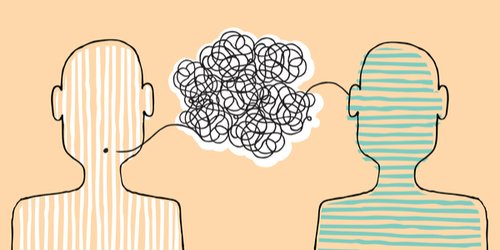The Role of Attitude in Social Communication
In psychology, attitude is an intangible mental construct, a non-specific, yet tangible persona that either inheres in, or identifies a person's attitude. Attitude can be defined as the attitudes and behaviors that people display toward others. They are usually complex and tend to be an inherited state through social experiences. At times it may be that we do not even know how our attitude and behavior influence other people. However, some attitudes can be specifically targeted at improving specific behaviors. For example, if an individual wants to lose weight or feel better about themselves, then they might try to alter their attitude in order to bring about the desired changes.

In contrast, psychologists who emphasize the influence of cognitive and environmental variables have sought to show the influence of these variables in attitude. The research of this school of thought suggests that individuals with positive cognitive skills are more likely to express negative or positive emotions and that individuals with positive attitudes tend to be more assertive and self-confident. On the other hand, psychologists who emphasize the role of negative experiences tend to portray the reverse: that individuals with negative emotions and thoughts are more self-critical and low in assertiveness. While the two theories are similar, they differ in their foundations. In cognitive psychologists' school, attitudinal changes are viewed as a function of the cognitive processes and these processes can be manipulated.
Researchers have explored the relationship between attitude and behavior by testing whether people with different temperaments respond to a common stimulus (like a speeding ticket) in the same way. Surprisingly, there was no consistent pattern of behavior displayed among the members of each group. Instead, there was a trend for one group's attitude to be consistently negative and the other's attitude to be consistently positive.
Another approach taken to testing attitude strength is to see if members of a given group consistently do the same thing over. If one behavior occurs consistently, then it is considered a form of attitude. The results are not perfect; for example, people may report that they do not like being tested because they feel their answers are personal. However, this also does not mean that they have a strong attitude. The consistency of behavior is not a good indicator of attitude strength. However, if a series of behaviors occur repeatedly, and one of them is consistently negative, then it is probably a sign of a more fundamental personality problem.
A third approach taken to attitude measurement is to consider how an attitude affects a person's cognition about a given topic. Cognitive attitude involves a person's interpretation of a given situation. For instance, if a person were to describe the behavior of a speeding vehicle, she might consider the vehicle's speed, its color, engine noise, etc. This attitude could also influence her attitude toward the police officer she watched closely. These attitudes can have a profound effect on what she believes or does about a given situation.
People's attitudes also have an effect on their behaviors. When people choose to behave in a certain way based on their beliefs about a situation, they will likely do so for a number of reasons. However, the effect of attitude on behavior can be much more subtle. In particular, some people may be motivated to behave in a certain way based on their attitude. If a person feels threatened by something, he may choose to behave in a certain way to make himself feel safe. In this sense, the attitude has a role in social communication.
It may be impossible to completely remove attitude from behavior. However, we can create situations and behaviors that will counteract the strongest forms of attitude. For example, if a student feels threatened by a teacher's teaching, he should attempt to develop a positive attitude toward the teacher. This can take several forms. One way is to develop the ability to recognize a teacher's behavior and ask for feedback, which will help the student adjust his behavior in order to be in line with the teacher's expectations.

Developing an attitude toward the instructor or object of attention requires the modification of beliefs regarding the instructor, the class, or the topic. Attitude can also affect the level or occurrence of certain behaviors based on previous beliefs. The cognitive component of attitude refers to those components of attitude that affect the decision-making process. Finally, the affective component refers to those aspects of the attitudes that are related to the emotions that accompany any situation and the feelings that one might have toward any particular situation.
Congratulations! Your post has been selected as a daily Steemit truffle! It is listed on rank 8 of all contributions awarded today. You can find the TOP DAILY TRUFFLE PICKS HERE.
I upvoted your contribution because to my mind your post is at least 21 SBD worth and should receive 63 votes. It's now up to the lovely Steemit community to make this come true.
I am
TrufflePig, an Artificial Intelligence Bot that helps minnows and content curators using Machine Learning. If you are curious how I select content, you can find an explanation here!Have a nice day and sincerely yours,

TrufflePig